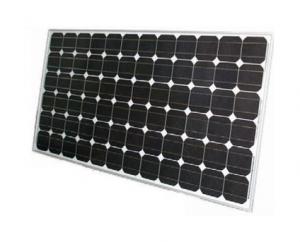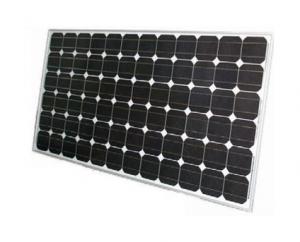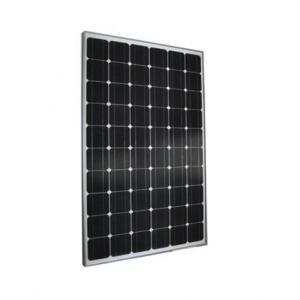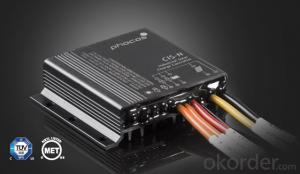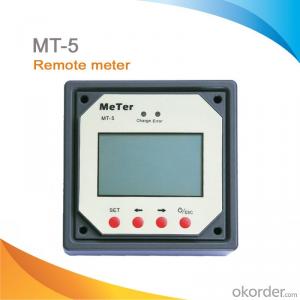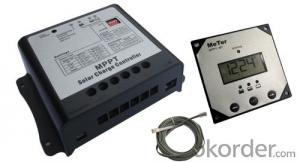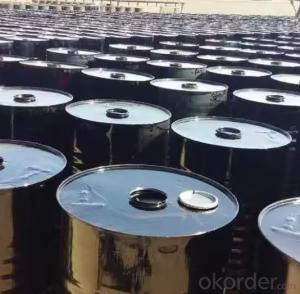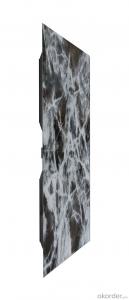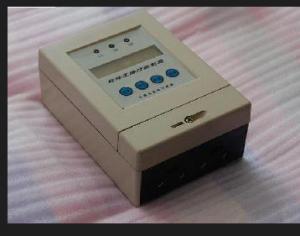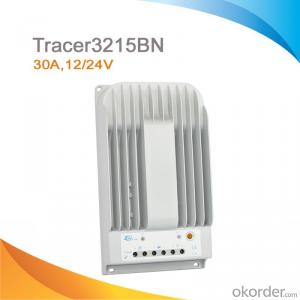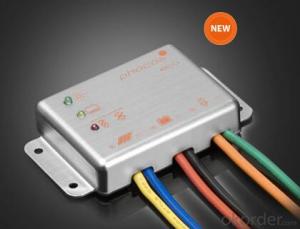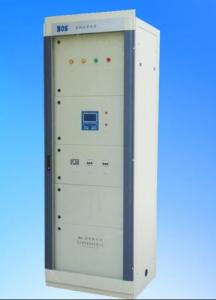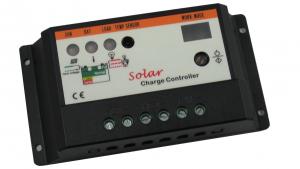Solar Panel Mono-crystalline 156*156 250W Module
OKorder Service Pledge
OKorder Financial Service
You Might Also Like
Solar Module Descriptions:
This high efficiency waterproof 250W mono-crystalline solar panel is ideal for all on-grid roof installations on houses and commercial buildings, as it has been manufactured to the highest standards and certified by MCS and TUV to be suitable for any on-grid solar installations. The solar panel is also perfect for all off-grid installations on caravans, campervans, motor homes and boats for charging leisure battery banks or for off-grid household solar systems with batteries.
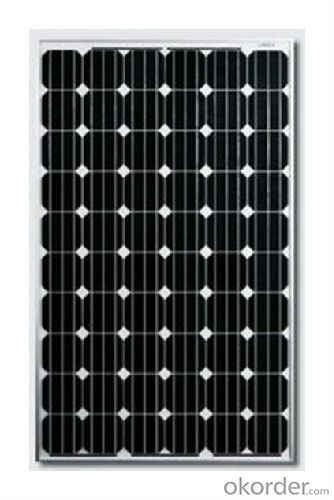
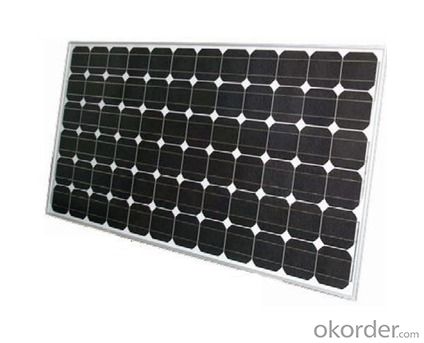
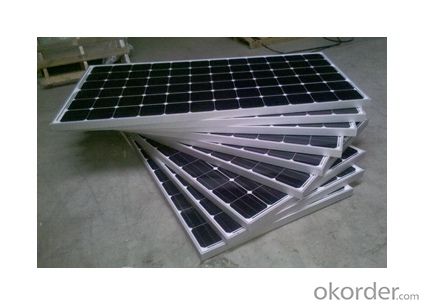
Electrical Characteristics
Max-pow (W) | 250 |
Max-Power Voltage (V) | 51 |
Max-Power Current (A) | 4.9 |
Open-Circuit Voltage (V) | 61.7 |
Short-Circuit Current (A) | 5.4 |
Mechanical Characteristics
Cable type, Diameter and Length | 4mm2, TUV certified, 1000mm |
Type of Connector | Compatible with MC4 plug |
Arrangement of cells | 6*12 |
Cell Size | 156*156 |
Dimension | 1580*1069*45 |
Weight | 20.5Kg |
Glass, Type and Thickness | High Transmission, Low Iron, Tempered Glass 3.2mm |
Features
Guaranteed positive tolerance 0/+5w ensures power output reliability
Strong aluminum frames module can bear snow loads up to 5400Pa and wind loads up to 2400Pa.
Excellent performance under low light environments (mornings evenings and cloudy days)
12 years for product defects in materials and workmanship and 25 years for 80% of warranted minimum power.
Certifications and standards: IEC 61215.
Manufactured according to International Quality and Environment Management System (ISO9001, ISO14100).
FAQ
Q: Do you have any MOQ limit?
Our MOQ is 200 pieces.
Q: How long is the warranty period for the solar modules?
15 years 90% of its nominal power rating.
25 years 80% of its nominal power rating
Q: What kind of loads can I run on PV?
With a correctly designed PV system you can power almost any electrical load.
- Q:How does a solar controller protect batteries from overcharging?
- A solar controller protects batteries from overcharging by monitoring the voltage of the batteries and regulating the flow of energy from the solar panels. When the batteries are fully charged, the controller automatically reduces or stops the charging process to prevent overcharging, which can cause damage and reduce the lifespan of the batteries.
- Q:Can I connect a solar controller directly to my battery bank?
- No, it is not recommended to connect a solar controller directly to a battery bank. A solar controller regulates the charging process and prevents overcharging, which is crucial for the longevity and performance of the batteries. Connecting it directly to the battery bank may result in damage to the batteries and reduced efficiency of the solar system.
- Q:Can a solar controller be used with a solar-powered residential building?
- Yes, a solar controller can be used with a solar-powered residential building. A solar controller is an essential component of a solar power system that helps regulate the charging and discharging of batteries, ensuring efficient energy management. It helps optimize the performance of solar panels by preventing overcharging and protecting the battery from damage. In a residential building, a solar controller would play a crucial role in maintaining the stability and reliability of the solar power system, making it an important component for any solar-powered residential building.
- Q:Is it necessary to use a solar controller with a small solar panel system?
- Yes, it is necessary to use a solar controller with a small solar panel system. A solar controller helps regulate the charging and discharging of the battery in the system, preventing overcharging and extending the battery's lifespan. It also protects the system from voltage fluctuations and ensures efficient energy conversion, maximizing the system's performance. Therefore, even with a small solar panel system, a solar controller is essential for optimal operation and longevity.
- Q:How does a solar controller prevent short-circuiting of solar panels?
- A solar controller prevents short-circuiting of solar panels by monitoring and regulating the flow of current from the panels to the battery or load. It ensures that the current does not exceed the maximum capacity of the panels, thus preventing any potential damage or short-circuiting that could occur from excessive current flow.
- Q:How do PWM solar controllers work?
- PWM (Pulse Width Modulation) solar controllers work by regulating the charging of batteries in a solar power system. They control the flow of energy from the solar panels to the batteries by rapidly switching the panels on and off, maintaining the battery at its optimal voltage level. This on-off switching creates a pulsed current with varying widths, allowing for efficient charging while preventing overcharging or undercharging of the batteries. The controller continuously monitors the battery voltage and adjusts the pulse width accordingly to maximize the charging efficiency and extend battery life.
- Q:How does a solar controller handle variations in solar panel current?
- A solar controller handles variations in solar panel current by regulating and optimizing the charge flow between the solar panels and the battery. It continuously monitors the current output from the panels and adjusts the charging parameters to match the battery's requirements. This ensures that the battery receives the appropriate amount of charge and prevents overcharging or undercharging, thereby maximizing the efficiency and lifespan of the battery.
- Q:How does a solar controller prevent battery over-temperature?
- A solar controller prevents battery over-temperature by continuously monitoring the temperature of the battery. It regulates the charging current and voltage to ensure that the battery does not get excessively hot, which could lead to damage or reduced battery life. It may also incorporate features like temperature sensors, temperature compensation, and thermal protection mechanisms to safeguard the battery from overheating.
- Q:Can a solar controller be used in extreme weather conditions (high winds, heavy rain, etc.)?
- Yes, a solar controller can typically be used in extreme weather conditions including high winds and heavy rain. Most solar controllers are designed to be weather-resistant and can withstand these conditions without any issues. However, it is always recommended to check the specific manufacturer's guidelines and specifications to ensure the controller is suitable for the intended weather conditions.
- Q:Can a solar controller be used with different types of solar tracking systems?
- Different types of solar tracking systems can be used with a solar controller. The solar controller has the responsibility of managing battery charge and discharge in a solar power system, as well as regulating power flow between the solar panels and batteries. Its main purpose is to ensure that the solar panels operate at their highest efficiency and that the batteries are charged correctly. Solar tracking systems have been designed to align solar panels with the sun, maximizing energy generation. There are various types of solar tracking systems available, including single-axis and dual-axis trackers, which differ in their ability to track the sun's movement. As long as the solar controller is compatible with the specifications and requirements of the tracking system, it can be integrated with any type of solar tracking system. The controller must be able to communicate with and receive input from the tracking system to adjust the orientation of the solar panels accordingly. Additionally, the solar controller should have the capability to handle increased power output and fluctuations caused by the movement of the solar panels. Using a solar controller in conjunction with a tracking system can improve the overall efficiency and performance of the solar power system. The controller ensures proper charging of the batteries by preventing overcharging or undercharging, while also optimizing the power flow between the solar panels and batteries.
1. Manufacturer Overview |
|
|---|---|
| Location | |
| Year Established | |
| Annual Output Value | |
| Main Markets | |
| Company Certifications | |
2. Manufacturer Certificates |
|
|---|---|
| a) Certification Name | |
| Range | |
| Reference | |
| Validity Period | |
3. Manufacturer Capability |
|
|---|---|
| a)Trade Capacity | |
| Nearest Port | |
| Export Percentage | |
| No.of Employees in Trade Department | |
| Language Spoken: | |
| b)Factory Information | |
| Factory Size: | |
| No. of Production Lines | |
| Contract Manufacturing | |
| Product Price Range | |
Send your message to us
Solar Panel Mono-crystalline 156*156 250W Module
OKorder Service Pledge
OKorder Financial Service
Similar products
New products
Hot products
Related keywords
